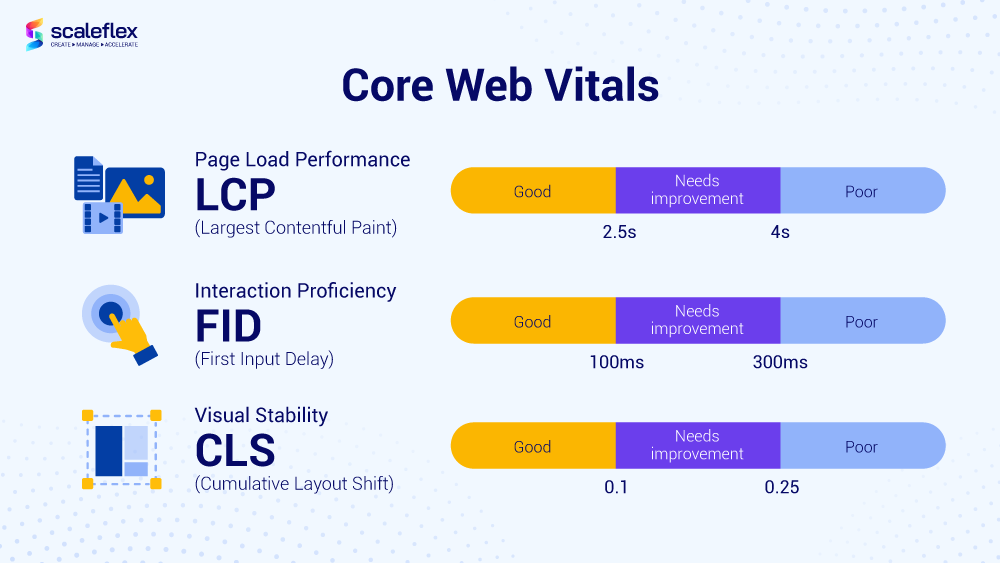The Ultimate Guide to Web Performance Optimization in Australia
At Cox Code, we understand that web performance is a crucial aspect of the digital experience. As a premier digital agency in Adelaide, we specialize in creating websites that aren't just aesthetically pleasing but are also optimized for speed and responsiveness. Web performance is the art and science of ensuring websites and applications are responsive and load quickly for users.

Thu Feb 08 2024
Ben Ajaero
The Ultimate Guide to Web Performance Optimization in Australia
Part 1: Introduction to Web Performance
Explaining Web Performance and Its Importance
At Cox Code, we understand that web performance is a crucial aspect of the digital experience. As a premier digital agency in Adelaide, we specialize in creating websites that aren’t just aesthetically pleasing but are also optimized for speed and responsiveness. Web performance is the art and science of ensuring websites and applications are responsive and load quickly for users. In an age where attention spans are short, and competition is fierce, performance can be the difference between success and failure online. It affects user experience, conversion rates, and even search engine rankings.
Overview of Web Performance in the Australian Context
In Australia, with its vast landscape and dispersed population, web performance takes on additional challenges. Users expect fast load times regardless of their location or the device they are using. Australian businesses must ensure their digital presence caters to these expectations to remain competitive both locally and in the global market.
Part 2: In-Depth Analysis of Web Performance Optimization
I. Understanding Web Performance Metrics

Key Performance Indicators (KPIs) for Websites
Critical metrics include load time, time to first byte, start render time, and time to interactive. These KPIs help identify areas of improvement and track performance enhancements.
Tools for Measuring Web Performance
Google’s PageSpeed Insights and Web Vitals offer deep insights into performance, while real user monitoring (RUM) provides data from actual site users.
II. Technical Foundation for Maximizing Web Performance
Importance of a Solid Hosting Solution
A reliable host with servers in Australia can significantly reduce latency and improve site speed for local users.
The Role of Content Delivery Networks (CDNs) in Australia
CDNs can distribute content across multiple servers worldwide, ensuring users access data from the closest node.
Database Optimization Techniques
Indexing, query optimization, and regular maintenance can dramatically improve database performance.
III. Front-End Optimization Strategies
Minimizing HTTP Requests
Reducing the number of elements on a page minimizes the number of HTTP requests required for a page to load.
Leveraging Browser Caching
Caching stores frequently accessed resources on the user’s device, speeding up subsequent visits.
The Impact of Image Optimization and WebP Format
Compressing images and using modern formats like WebP can significantly decrease load times.
CSS and JavaScript Minification Best Practices
Minifying these files removes unnecessary characters, reducing their size and load time.
IV. Responsive and Mobile-Friendly Design Considerations
The Importance of Mobile Responsiveness for Australian Users
With a high rate of mobile usage, optimizing for mobile is a must for Australian websites.
Tips for Creating Fast-Loading Mobile Experiences
Simplify design, use responsive images, and prioritize above-the-fold content for quick interactions.
V. Utilizing Caching for Performance Enhancement
Understanding Different Types of Caching
Browser caching, server-side caching, and CDN caching are all important for performance.
Implementing Effective Caching Strategies
Setting appropriate cache lifetimes and understanding cache hierarchies can improve performance.
VI. Advanced Techniques and Emerging Technologies
Progressive Web Apps (PWAs) for Enhanced Performance
PWAs provide a native-like experience and can load instantly, even in uncertain network conditions.
Accelerated Mobile Pages (AMP) in Australia
AMPs can improve mobile loading speeds, though they come with trade-offs in flexibility and control.
VII. Security and Performance
The Relationship Between Website Security and Performance
Secure sites with HTTPS can take advantage of HTTP/2, improving performance.
Best Practices for Secure and Fast-Loading Websites
Use SSL certificates, keep software updated, and follow security best practices without compromising on speed.
FAQs
- What are common causes of poor web performance? Large images, unoptimized code, and inadequate hosting can all contribute.
- How does web hosting affect site speed? Hosting dictates server response time and scalability, impacting speed.
- Can website performance impact SEO? Yes, search engines favor fast-loading sites, and performance is a ranking factor.
VIII. Conclusion and Final Thoughts
Web performance is an ongoing pursuit. As technology evolves, so must our strategies for optimization. In the Australian digital landscape, staying ahead of web performance standards is essential for maintaining a competitive edge.
Relevant External Links:
- Google’s PageSpeed Insights: “Analyze your web performance with Google PageSpeed Insights”
- W3C’s Mobile Web Best Practices: “Follow W3C’s Best Practices for Mobile Web Development”
- Content Delivery Network (CDN)information from Cloudflare: “Learn about the benefits of using a CDN for optimizing web performance”
Ready to optimize your web performance and elevate your online presence? At Cox Code, we’re experts at crafting websites that not only look great but perform exceptionally under any conditions.
We believe that a well-designed website is the cornerstone of a successful digital strategy, and our team is dedicated to transforming your digital ideas into reality.
Enhance your user experience, improve your SEO, and stay ahead of the Australian web standards with Cox Code’s bespoke web design and development services. Contact us today to see how we can tailor a web performance solution that drives success for your business.






